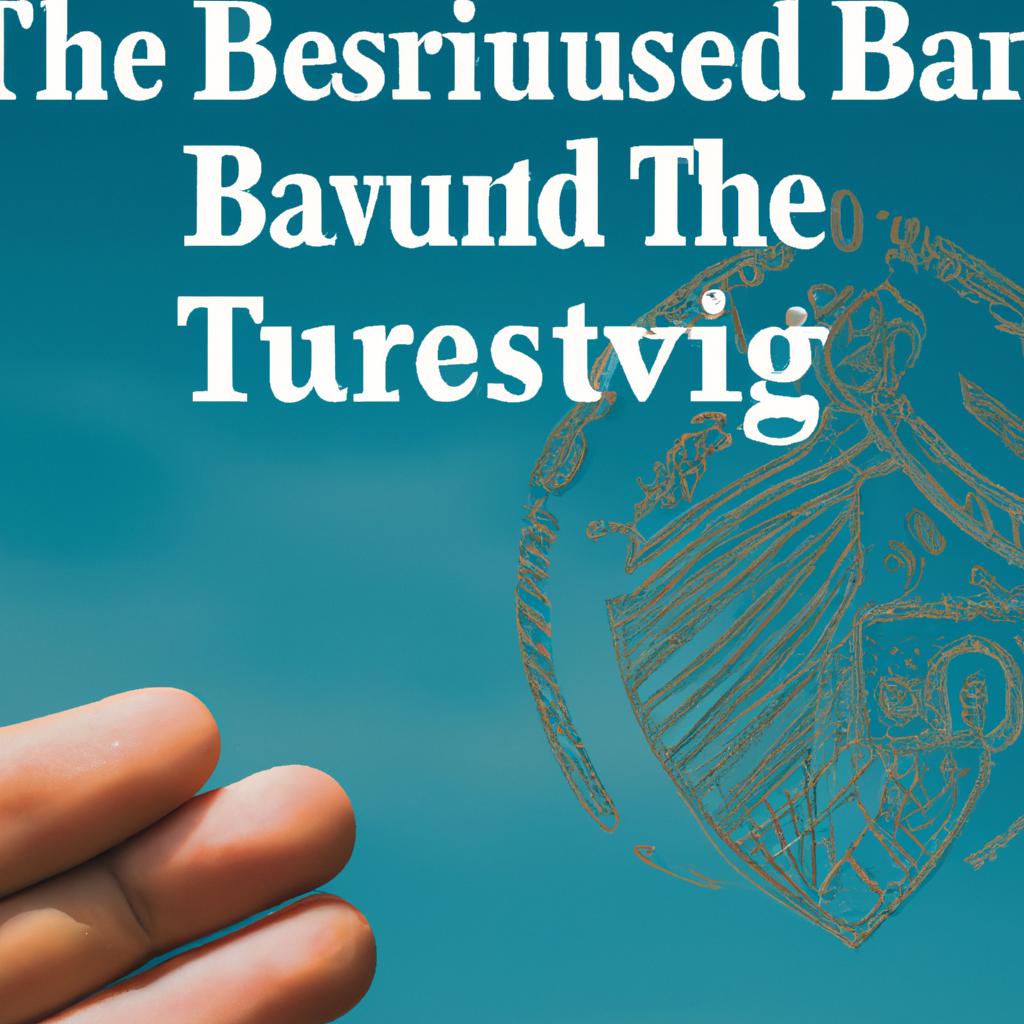In a world where our belongings and family members face constant uncertainty, there is one reliable and secure method to safeguard what matters most – creating a trust. Trusts provide a unique opportunity to protect your wealth, provide for future generations, and maintain control over how your assets are managed and distributed. This article will explore the various reasons why establishing a trust can be one of the wisest decisions you’ll ever make.
Advantages of Establishing a Trust
Creating a trust offers a wide range of benefits, serving as a versatile and powerful tool for managing your assets and estate. Some key advantages of establishing a trust include:
- Protection of Assets: Trusts can shield your assets from creditors and legal claims, preserving your wealth for future generations.
- Avoidance of Probate: By transferring assets into a trust, you can potentially bypass the time-consuming and costly probate process, ensuring a quicker distribution of assets to beneficiaries.
- Privacy: Unlike wills, trusts do not become public record upon your passing, providing a greater level of privacy and confidentiality for your estate planning decisions.
- Control: Trusts allow you to specify how and when your assets are distributed to beneficiaries, ensuring that your wishes are carried out according to your instructions.
- Tax Efficiency: Trusts can offer potential tax advantages, helping to minimize estate taxes and preserve more of your wealth for your heirs.
- Flexibility: Trusts can be customized to suit your unique needs and goals, allowing for a high degree of flexibility in estate planning.
Establishing a trust can provide you with peace of mind knowing that your assets are protected, your wishes are respected, and your loved ones are provided for in the future.
Protecting Assets and Minimizing Taxes
Setting up a trust can be a strategic move when it comes to protecting your assets and minimizing taxes. Trusts offer a variety of benefits that can help safeguard your wealth and ensure that your loved ones are taken care of in the future.
- Asset Protection: By placing your assets in a trust, you can protect them from creditors, lawsuits, and other potential threats, ensuring that your wealth is preserved for your beneficiaries.
- Tax Efficiency: Trusts can also offer tax advantages, allowing you to minimize the amount of taxes that you and your heirs will have to pay on your assets.
- Privacy: Unlike wills, trusts do not have to go through probate, which means that your financial affairs can remain private and out of the public record.
Starting a trust can provide you with peace of mind knowing that your assets are protected and that your wishes will be carried out according to your specific instructions. Consult with a trust and estate planning attorney to learn more about how a trust can benefit you and your family.
Ensuring Privacy and Avoiding Probate
Creating a trust is a proactive way to ensure your privacy and avoid the lengthy and public probate process. By creating a trust, you can keep your assets confidential and distribute them according to your wishes without the need for court involvement.
Additionally, a trust can help minimize estate taxes and protect your assets from creditors, ensuring that they are not tied up in probate or legal battles. Starting a trust is a smart decision for anyone looking to maintain privacy, avoid probate, and protect their assets for themselves and their beneficiaries.
Passing on Wealth and Providing for Loved Ones
Setting up a trust can be a smart and strategic move when it comes to passing on wealth and providing for loved ones. Trusts offer a variety of benefits that can help ensure your assets are distributed according to your wishes and provide for your family members in the long term.
One of the main reasons to start a trust is to avoid probate, which can be a lengthy and costly process. By placing your assets in a trust, you can bypass the probate process entirely, saving time and money for your loved ones. Trusts also offer privacy, as they are not part of public record like a will, allowing for a more discreet distribution of assets.
Another reason to consider setting up a trust is to provide for minor children or family members who may not be able to manage a large inheritance on their own. By establishing specific terms and conditions within the trust, you can ensure that your loved ones are taken care of financially and that your assets are protected.
Final Thoughts
Creating a trust can be a powerful tool for protecting and managing your assets for future generations. Whether you are looking to ensure the financial security of your loved ones or simply want to have greater control over your assets, starting a trust can offer numerous benefits and peace of mind. Take the first step towards securing your legacy by exploring the options and possibilities that come with creating a trust today. Trust in the process, and watch your assets grow and thrive for years to come.

What is a Trust?
A trust is a legal arrangement that allows a trustee to hold assets on behalf of a beneficiary or beneficiaries. Trusts are commonly used for estate planning purposes to ensure that assets are managed and distributed according to the wishes of the trust creator.
Benefits of Starting a Trust
1. Asset Protection
One of the key benefits of creating a trust is asset protection. By placing assets in a trust, they are shielded from potential creditors, lawsuits, and other claims. This can help safeguard your wealth for future generations.
2. Avoiding Probate
Assets held in a trust typically do not go through the probate process, which can be time-consuming and costly. By avoiding probate, your loved ones can access their inheritance more quickly and efficiently.
3. Privacy
Unlike a will, which becomes a public document after probate, a trust provides privacy for your estate planning decisions. This means that the details of your assets and beneficiaries remain confidential.
4. Control Over Distribution
With a trust, you have the ability to specify how and when your assets will be distributed to your beneficiaries. This can be useful if you have concerns about a beneficiary’s ability to manage their inheritance responsibly.
5. Tax Benefits
Depending on the type of trust you create, there may be potential tax benefits available to you. Trusts can help minimize estate taxes, income taxes, and capital gains taxes, allowing you to preserve more of your wealth for your heirs.
Practical Tips for Starting a Trust
- Consult with an experienced estate planning attorney to help you create a trust that aligns with your goals and wishes.
- Consider the type of trust that best suits your needs, such as a revocable trust, irrevocable trust, or charitable trust.
- Be thorough when drafting your trust documents to ensure that your intentions are clearly outlined and legally binding.
- Regularly review and update your trust to account for any changes in your financial situation or family circumstances.
Case Study: The Smith Family Trust
The Smith family decided to create a trust to protect their assets and provide for their children in the event of their passing. By establishing a revocable trust, they were able to avoid probate and maintain control over the distribution of their assets.
Over the years, the Smith family updated their trust to include new investments and adjust beneficiary designations. When Mr. Smith passed away, Mrs. Smith was able to access their assets quickly and efficiently without the need for court involvement.
Firsthand Experience: Jane’s Trust Journey
Jane, a successful business owner, decided to create a trust to protect her business assets and provide for her grandchildren’s future education. With the help of her estate planning attorney, Jane established an irrevocable trust that offered tax benefits and asset protection.
Years later, Jane’s grandchildren were able to receive funds from the trust for their college tuition, thanks to the careful planning and foresight she had put into place. Jane’s trust journey was a success, providing peace of mind for her and financial security for her loved ones.
Conclusion
Starting a trust can offer numerous benefits for you and your loved ones, including asset protection, avoiding probate, privacy, control over distribution, and potential tax advantages. By working with a trusted estate planning professional, you can create a tailored trust that meets your specific needs and goals. Consider the advantages of starting a trust as part of your long-term financial planning strategy.


